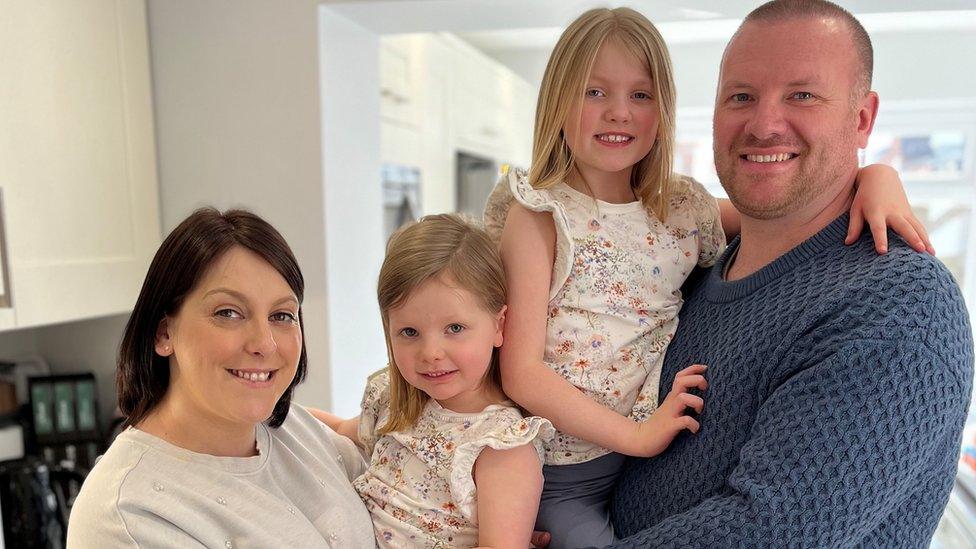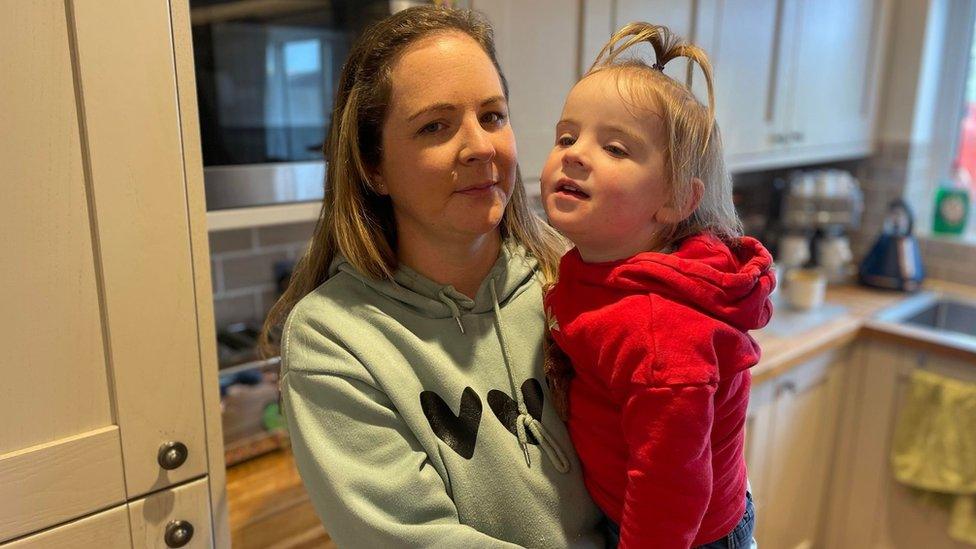Gluten-free prescription cancellations in Hampshire spark concern
- Published

Kate and Simon Powell, from Waterlooville, say they feel "nervous" after the prescriptions were scrapped
The withdrawal of gluten-free food prescriptions for people with coeliac disease will have a detrimental effect, a charity has warned.
The prescriptions were cancelled on the Isle of Wight in 2017 before the island's healthcare merged with Hampshire in 2021.
Last month, NHS Hampshire and Isle of Wight also scrapped them in Hampshire.
The trust's deputy chief medical officer Dr Tim Cooper said the decision "was not taken lightly".
Coeliac UK estimates that the autoimmune disease affects around one in 100 people in the country.
Symptoms are wide-ranging but can include bloating, stomach cramps, vomiting, diarrhoea and fatigue.
When a person with coeliac disease eats gluten, it can cause debilitating symptoms and, in the long term, can lead to conditions such as osteoporosis, neurological dysfunction, unexplained infertility, recurrent miscarriage and even small bowel cancer, according to the charity.
'Difficult decisions'
Coeliac UK said the trust's integrated care board - which plans health services for the local population - estimates up to 900 patients in the county were being prescribed gluten-free foods.
The gluten-free prescriptions provided patients with a monthly supply of gluten-free products, mainly bread and flour mix.
Kate and Simon Powell, from Waterlooville, have two children, aged four and seven, who are coeliac.
The couple received monthly boxes for their daughters, including 16 packs of bread rolls and eight loaves of bread.
Mrs Powell said: "We feel nervous because of the cost of living. It's probably going to cost us about £15 to £20 a week more now.
"It's adding to the food budget which is already stretched."
Coeliac UK said a weekly gluten-free food shop can be up to 20% more expensive than a standard weekly food shop.
Tristan Humphries, the charity's head of advocacy, said the "evidence was clear" that gluten-free prescriptions provide a "crucial lifeline for coeliacs and keep them well".

Coeliac UK's Tristan Humphries says the gluten-free prescriptions were a "lifeline" for many people
He added: "They are cost effective and prevent the NHS picking up the tab for serious conditions that could occur without such a diet."
Mr Humphries said the charity was "extremely disappointed" at the decision and "shocked" by the trust's "failure to consult with patients or Coeliac UK".
Dr Cooper said the trust had a duty to use the "limited amount of NHS funding available" in a way that means local people have access to the best possible medical care, treatment and support for their health needs.
"This means we are constantly needing to make difficult decisions to get best value for money," he said, adding: "The decision to request gluten-free foods are no longer routinely prescribed was not taken lightly and took into consideration a range of both clinical and social factors, including the wider availability of gluten-free products in supermarkets."

Follow BBC South on Facebook, external, X, external, or Instagram, external. Send your story ideas to south.newsonline@bbc.co.uk, external.
Related topics
- Published12 September 2023

- Published27 December 2022
